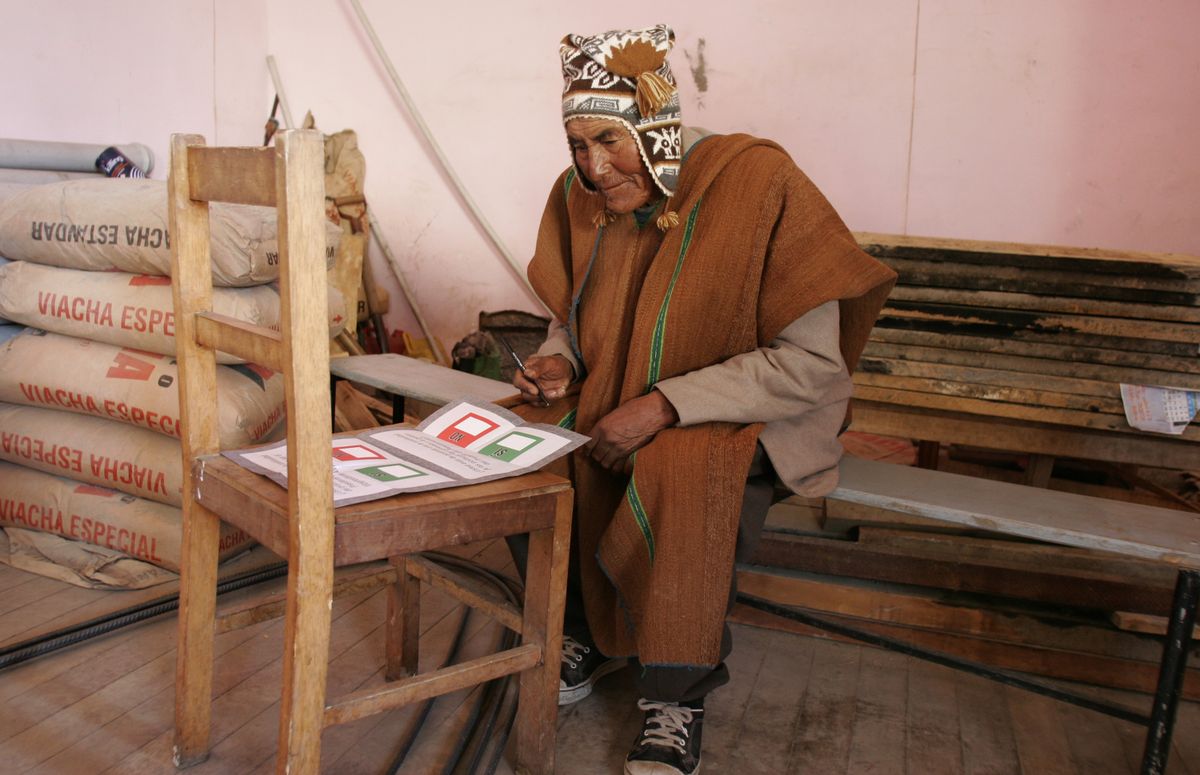Bolivian president survives election test

LA PAZ, Bolivia – President Evo Morales scored a split victory in a national referendum Sunday when Bolivians voted to keep him in office but also ratified governors who are his implacable foes, according to television exit polls.
The result will mean continued division along political and geographic lines over Morales’ efforts to push through socialist policies meant to give greater political and economic power to the indigenous majority, analysts said.
“The polarization will continue,” former President Carlos Mesa said in an interview. “So will the radical policies by both sides. Neither side has enough power to make the changes it wants on its own.”
Morales emerged from Sunday’s plebiscite with a strengthened hand after winning 60 percent of the overall vote, according to ATB television station. Morales received overwhelming majorities in Bolivia’s western Andean states.
In the expectations game, the 60 percent result would reinvigorate the president politically because it would top the 53.5 percent he received when he was elected in December 2005.
But the opposition – which is centered in the more entrepreneurial-minded eastern states – has also emerged fortified. Three of the four states that voted this year for great autonomy from the central government in La Paz rejected the president, and voters ratified opposition governors in all four of the states.
Bolivia is South America’s poorest country, with an economy the size of Alaska’s. Under Morales, Bolivia has uneasy relations with the United States.
Reporters from around the world covered Sunday’s election. The principal draw was the political fate of Morales, a grower of coca, the raw ingredient for cocaine. He is the first self-identified indigenous president in Bolivia’s 183-year history.
Voters had to decide on Sunday whether to recall Morales and eight of the nine governors in a climate made tense in recent days by hunger strikes, road blockages and warnings that violence could erupt in the coming week.
Sunday, however, provided a calm respite on a day that felt like a festive holiday. As in past elections, vehicles were banned from the streets, alcohol sales were prohibited and voting was obligatory. Many voters walked their dogs to polling stations.
The next volatile dispute likely will be Morales’ move to seek public approval for a proposed constitution already written by an assembly stacked with his supporters.